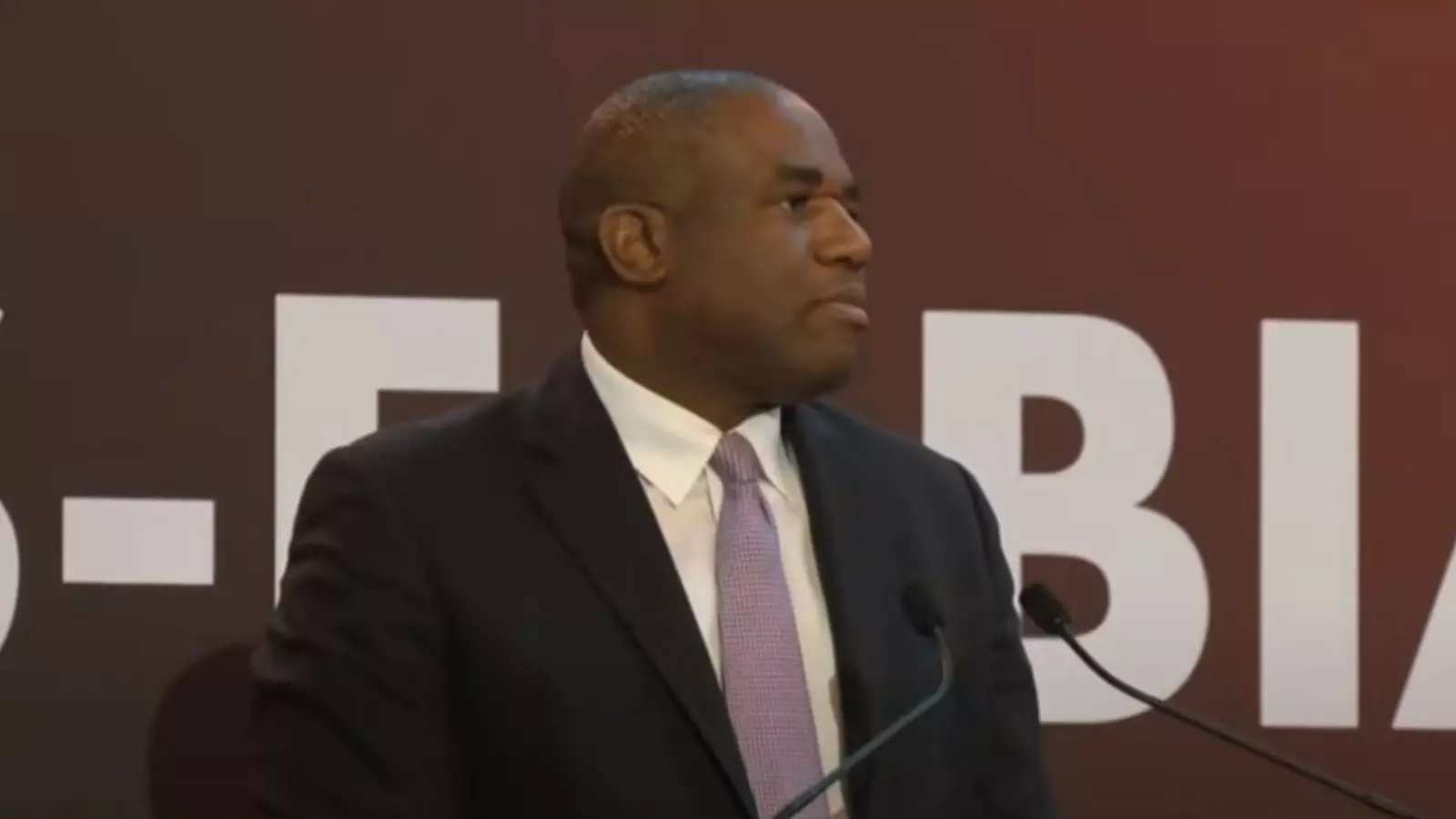Pro-Palestinian protesters recently disrupted a speech by shadow foreign secretary David Lammy, voicing their concerns and criticisms of Labour’s policy on the Israel-Hamas war. The incident occurred during Lammy’s address to the Fabian Society, where he aimed to outline the party’s foreign policy in the event of winning the next general election. This article dives into the implications of these protests, shedding light on the potential effects on Labour’s stance and its key figures.
During his speech, Lammy faced a series of interruptions from activists draped in Palestinian flags. They shouted statements like “will you condemn the genocide” and “how many more children need to die,” reflecting their deep-seated frustrations with the party’s position on the conflict. The disruptions did not end there, as further protesters joined in, demanding that Lammy and the Labour party feel “ashamed” and accused them of having “blood on your hands.”
Lammy’s reactions to the interruptions showcased an attempt to acknowledge the protesters’ concerns while remaining steadfast in his party’s approach. His response of “Change through power not process” aimed to convey the Labour party’s belief in bringing about meaningful change through political channels rather than through immediate actions. This response, however, may not fully satisfy the protesters, as they sought more concrete condemnation and a stronger stance against the conflict.
Labour leader Sir Keir Starmer initially faced criticism for his statement expressing Israel’s right to self-defense without a similar show of support for Gaza’s people. However, he has since taken a more assertive position, particularly regarding Israeli Prime Minister Benjamin Netanyahu. Netanyahu’s recent indication of withdrawing support for a two-state solution at the culmination of the current conflict has likely fueled Labour’s determination to address the matter.
The interruptions and protests during Lammy’s speech highlight the growing pressure on Labour to reassess its foreign policy towards the Israel-Hamas war. The party faces a delicate balancing act as it seeks to maintain its historical support for Palestinian rights while addressing concerns about security and stability in the region. These protests may push Labour to take a more forceful stance against the conflict or to communicate its position more effectively to the public.
The interruptions in Lammy’s speech by pro-Palestinian protesters have caused a stir in Labour’s foreign policy landscape. While the party aims to strike a delicate balance between supporting Palestinian rights and addressing regional stability, the protests shed light on the discontent among activists who demand a more vociferous condemnation of the conflict. As Labour continues to navigate this complex issue, its response to these protests will shape its foreign policy and its ability to appeal to voters who hold strong convictions on the Israel-Hamas war.

Leave a Reply